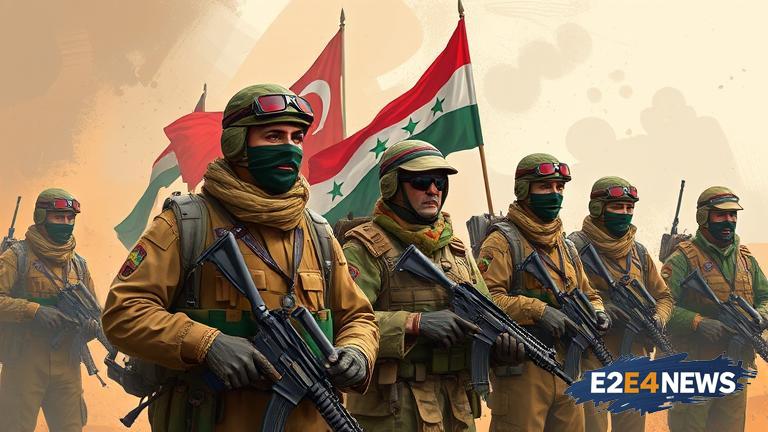The Syrian Democratic Forces (SDF), a Kurdish-led militia, is resisting pressure to disarm amid a push for integration into the Syrian government. The SDF has been a key player in the fight against the Islamic State (ISIS) in Syria, and has established a semi-autonomous region in the north of the country. However, the Syrian government, backed by Russia, is seeking to reassert its control over the region and has called on the SDF to disarm and integrate into the Syrian army. The SDF has refused, citing concerns over security and autonomy. The group’s leaders have stated that they will not disarm until their security concerns are addressed and they are guaranteed a degree of autonomy within a federal Syria. The SDF’s resistance to disarmament has been backed by the United States, which has provided military support to the group in its fight against ISIS. However, the US has also called on the SDF to engage in talks with the Syrian government, which has led to tensions between the two allies. The situation has been further complicated by the presence of Turkish forces in the region, which have been attacking SDF positions in recent weeks. The Turkish government views the SDF as a terrorist organization and has vowed to crush the group. The SDF has accused Turkey of seeking to occupy the region and has called on the international community to intervene to stop the attacks. The Syrian government has also been accused of seeking to occupy the region, and has been criticized for its human rights record. The SDF has established a number of institutions in the region, including a government, a parliament, and a security force, which it says are essential to the region’s stability and security. The group has also implemented a number of policies aimed at promoting democracy and human rights, including the establishment of a women’s rights committee and a committee to investigate human rights abuses. Despite these efforts, the SDF faces significant challenges, including a lack of international recognition and a shortage of resources. The group has called on the international community to provide more support, including diplomatic recognition and economic aid. The situation in Syria is complex and multifaceted, and a solution to the conflict will require a comprehensive and inclusive approach. The SDF’s resistance to disarmament is just one aspect of the larger conflict, which involves a range of actors, including the Syrian government, Russia, Turkey, and the US. A lasting solution will require a negotiated settlement that addresses the concerns of all parties, including the SDF, and provides for the security and autonomy of the region. The international community has a critical role to play in supporting a peaceful resolution to the conflict, and must work to promote a comprehensive and inclusive approach. The SDF’s leadership has stated that it is committed to a peaceful resolution to the conflict, and has called on the international community to support its efforts. The group has also emphasized the importance of protecting the rights of all citizens in the region, regardless of their ethnic or religious background. The SDF’s commitment to democracy and human rights is a key aspect of its vision for the region, and the group has implemented a number of policies aimed at promoting these values. The situation in Syria is a reminder of the importance of promoting democracy and human rights, and of the need for a comprehensive and inclusive approach to resolving conflicts. The international community must work to support the SDF’s efforts to promote democracy and human rights, and to provide a lasting solution to the conflict in Syria.
